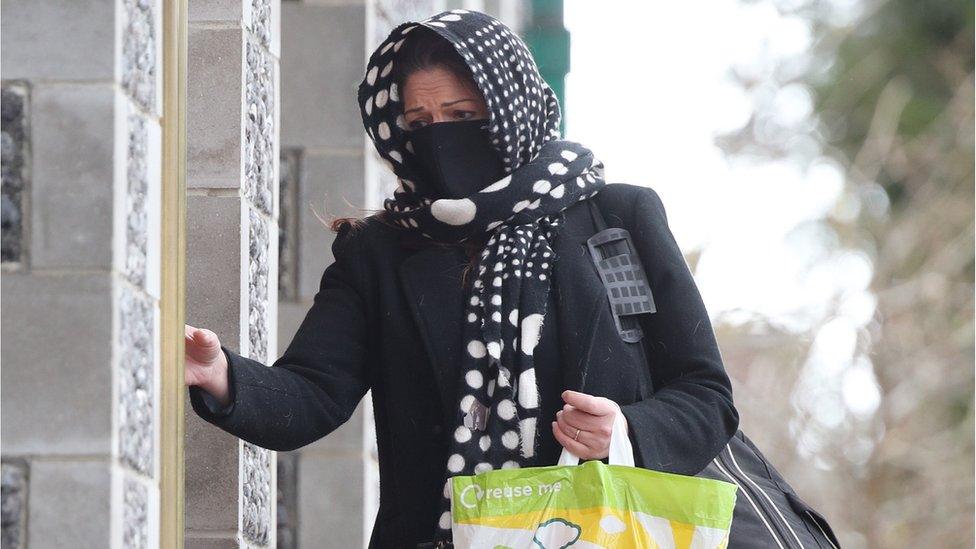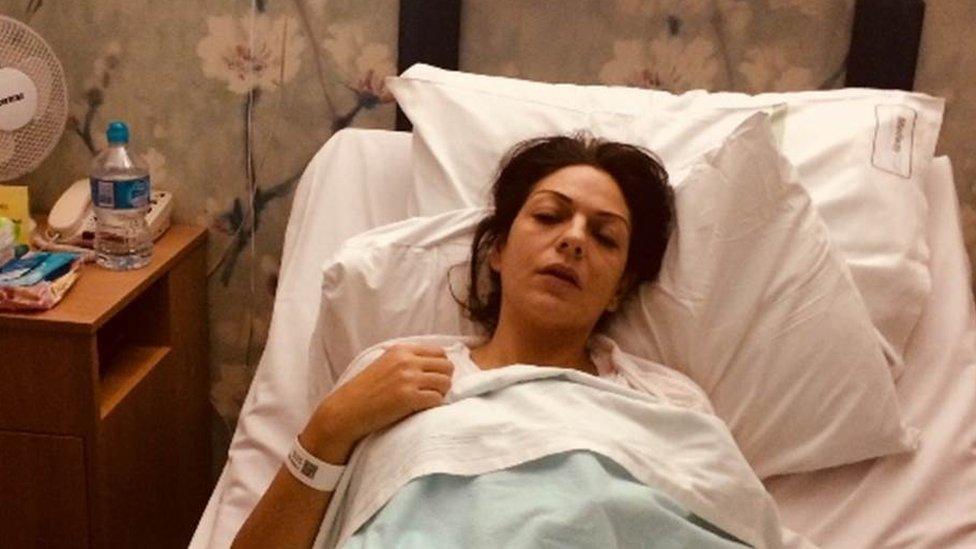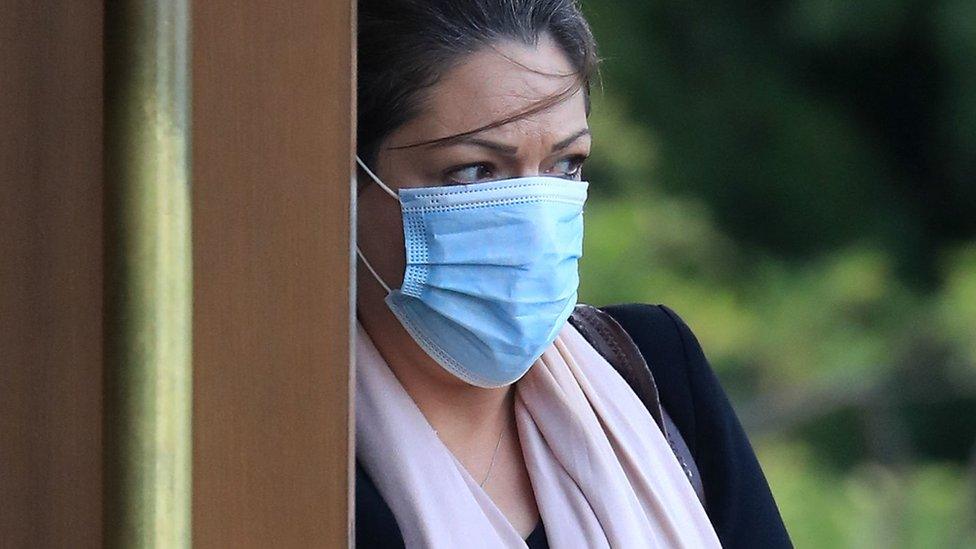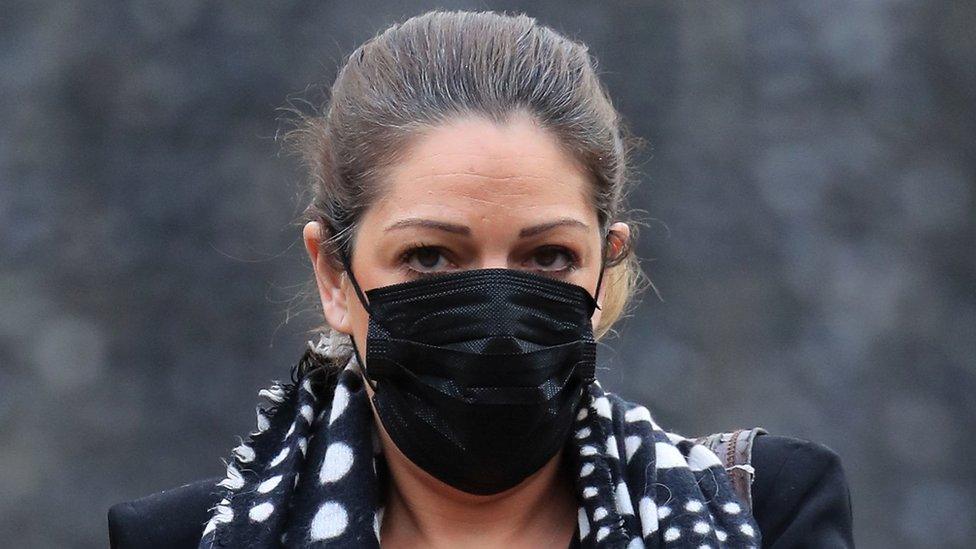Woman jailed for fake cancer GoFundMe fundraising fraud
- Published

Elkabbas was sentenced to two years and nine months in prison
A woman who faked a cancer diagnosis to claim more than £45,000 in donations has been jailed for 33 months.
Nicole Elkabbas, 42, set up an online fundraising campaign, falsely claiming she needed money to pay for private treatment for ovarian cancer.
A judge said she had carried out a "cunning and manipulative" deception.
Elkabbas, who pleaded not guilty and claimed she believed she had cancer, was convicted by a jury at Canterbury Crown Court in November.
Judge Mark Weekes told Elkabbas she had carried out a "lengthy, involved and sophisticated deception" of hundreds of people in order to "obtain large sums of cash to sustain your very significant gambling habit".

The fundraising campaign included a picture taken while she had been receiving routine gallbladder treatment, the court heard
In 2018, she set up a GoFundMe campaign, which said she had just weeks to raise money for major surgery in Spain.
She claimed a costly "breakthrough drug" could improve her chances, and included an image of her lying in a hospital bed.
However, the court heard the image had actually been taken during routine gallbladder treatment several months earlier.
The money was instead spent on gambling and trips to Barcelona and Rome, the court heard.
'Web of lies'
Elkabbas, of Broadstairs, Kent, had provided victims with "detailed and at times graphic accounts" of the treatment she claimed to be receiving "with a view to keeping those you had snared in your web of lies paying you money," the judge said.
"You tugged at their heart string," he said. "You made mention of your child to gild the lily still further and to attempt to wring more cash out of those you had deceived."
Police began an investigation in 2018 after a doctor, who had recently given her the all-clear, saw her crowd-funding page and raised suspicions.
Judge Weekes said the impact on the NHS was the most significant impact of her "deeply offensive" behaviour.

Nicole Elkabbas told jurors that she was addicted to gambling
In a statement, read to the court, Steven Pompeus, of East Kent Hospitals NHS trust, said that during the Covid-19 pandemic two consultants were "taken out of the frontline" to give evidence "when their work was plainly better needed working within the NHS and working clinically".
Elkabbas's lies also had a negative impact on genuine fundraisers, by promoting "scepticism and even cynicism in an area that can ill-afford it," the judge said.
"Your actions, as you well know, are insulting to those who must genuinely and courageously face the battle against cancer," he added.
Elkabbas's mother died of cancer on 19 December, the court.
Oliver Kirk, defending, said the bereavement had left her with responsibility to care for both her teenage son and 77-year-old father.
Elkabbas had been "in the grip of a gambling addiction" at the time of the offences, but had since sought treatment, he said.

Elkabbas did not show "genuine empathy" for her victims, the judge said
Sentencing Elkabbass, Judge Weekes said she had "fought this case tooth and nail, refusing to accept the fact that you had not been diagnosed with cancer".
"I judge that the remorse you may feel now is only partial, it stems to a significant extent from self-pity...rather than genuine empathy at what you have done to your direct and indirect victims," he added.
Elkabbas was sentenced to two years and nine months imprisonment after being convicted of fraud by false representation and possessing criminal property.
Judge Weekes said that he had "very significantly reduced the sentence" to limit the amount of time that her son would be without his mother.
Related topics
- Published20 November 2020

- Published1 February 2021
